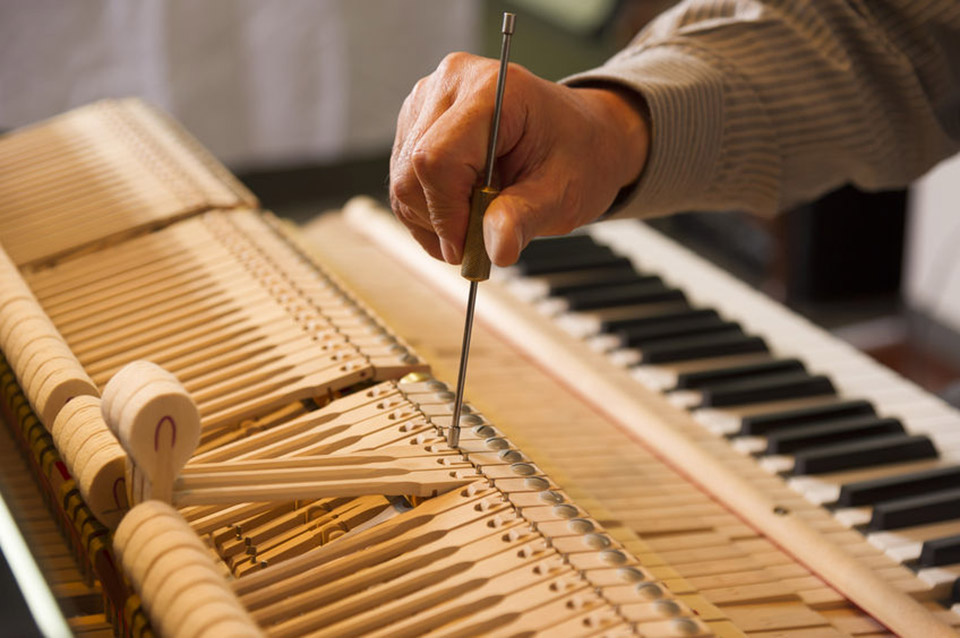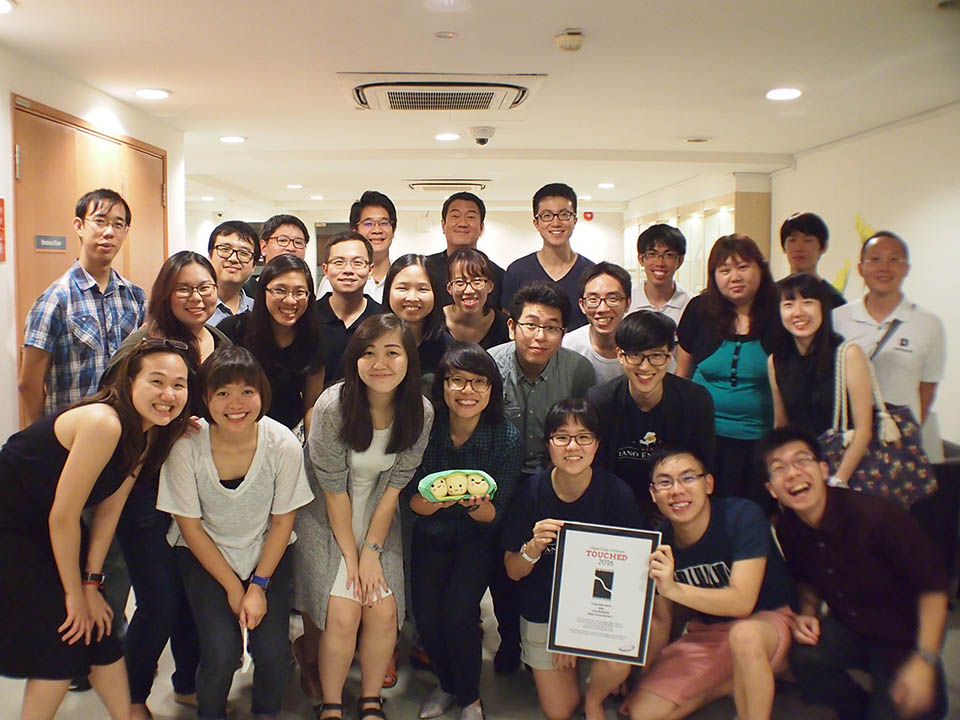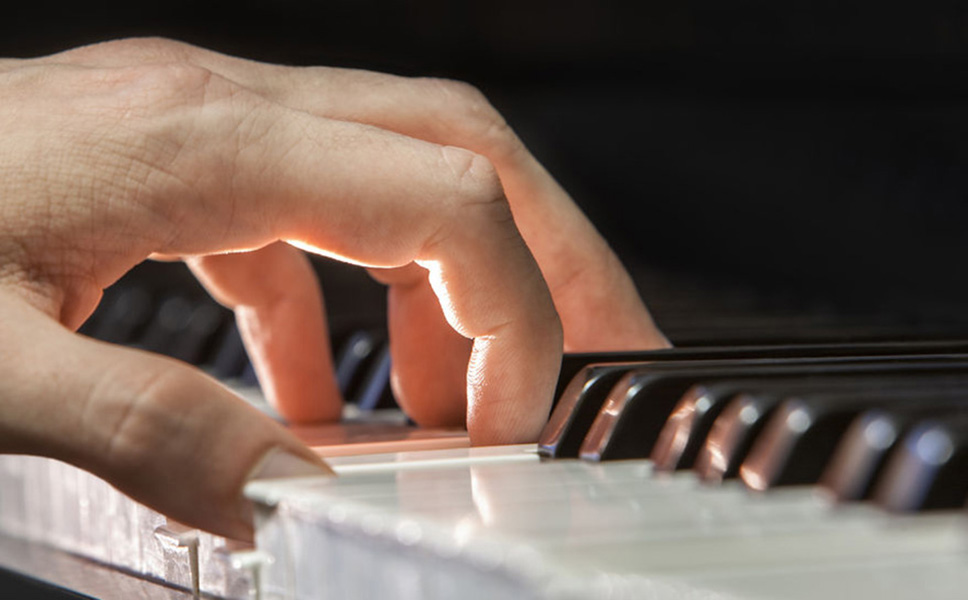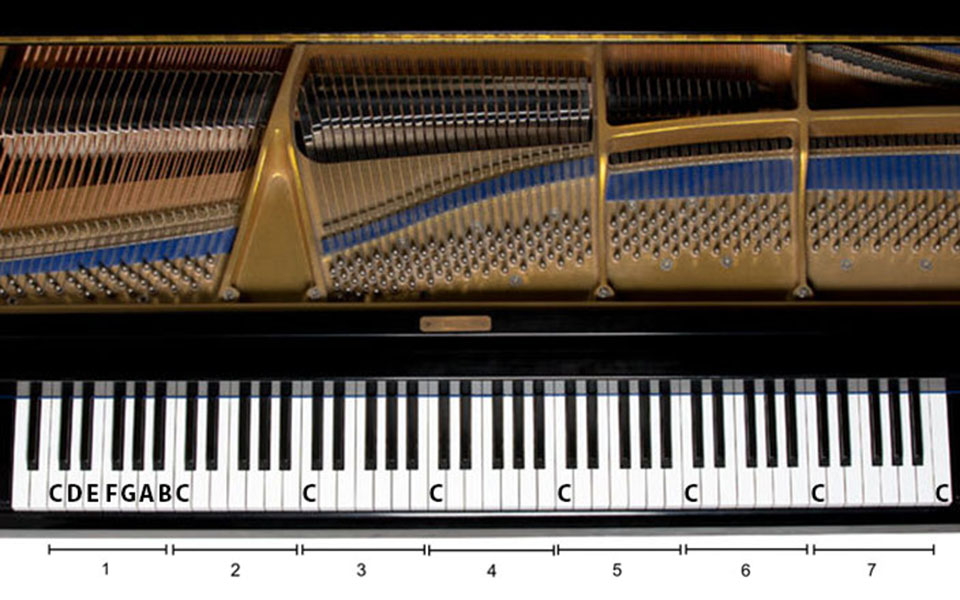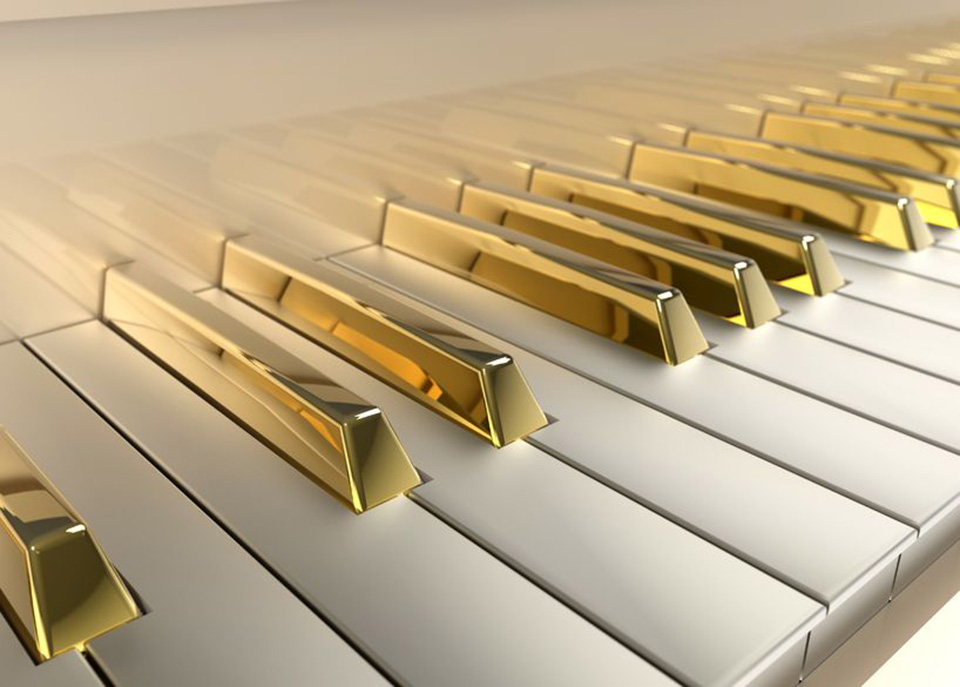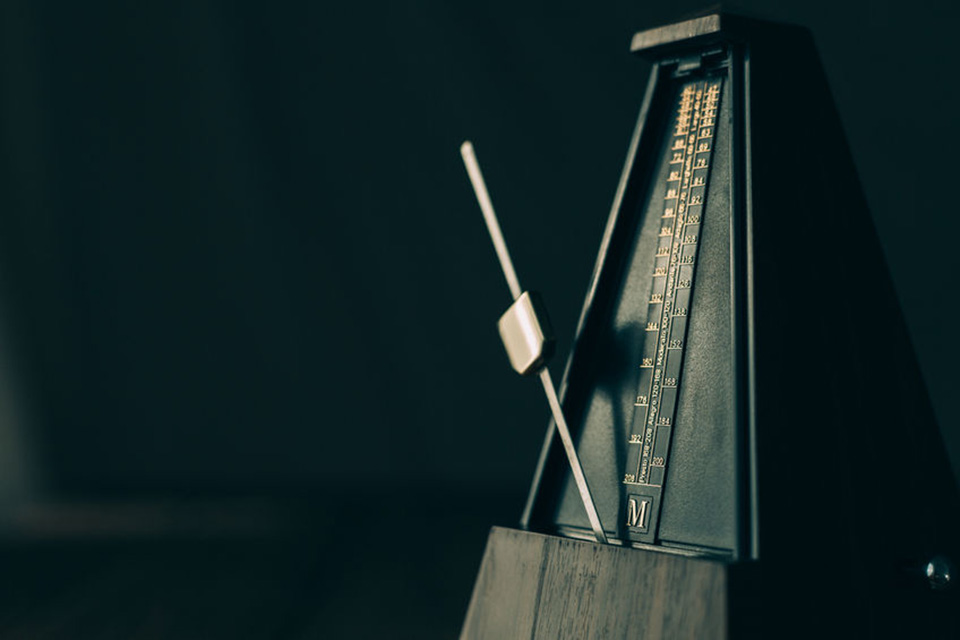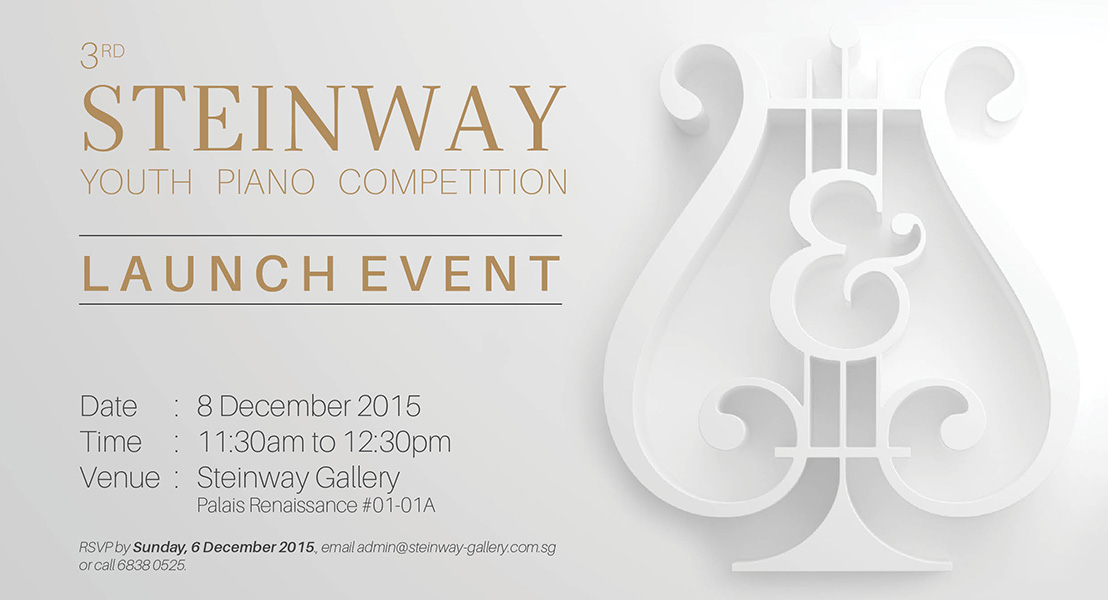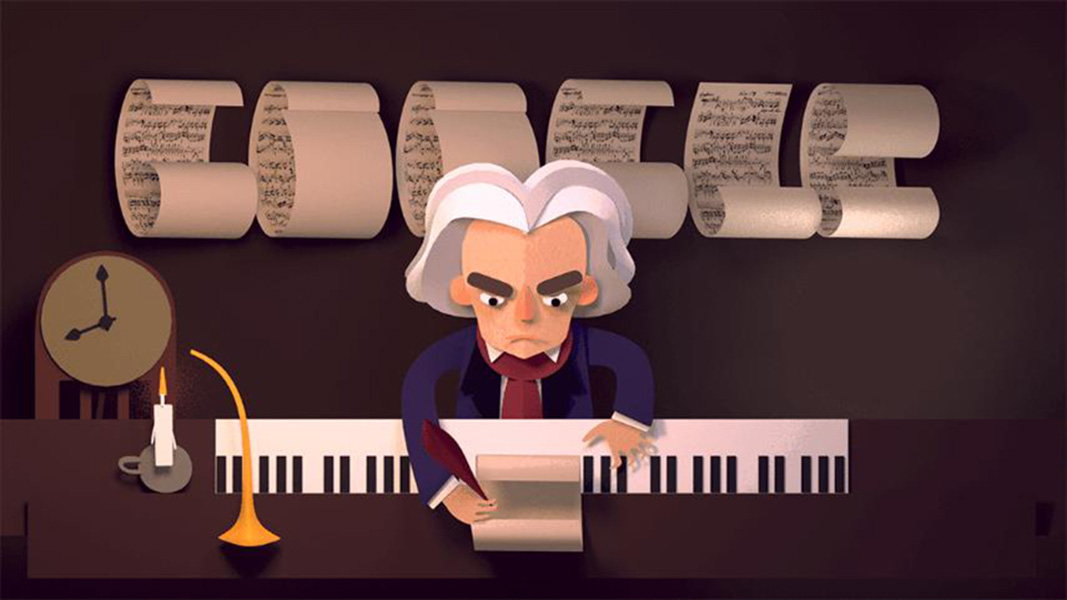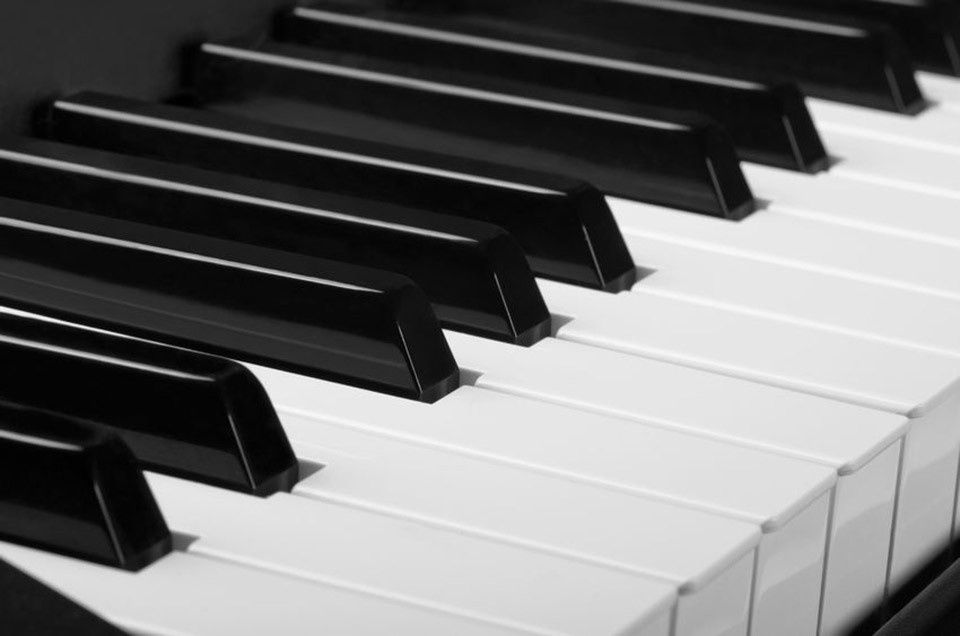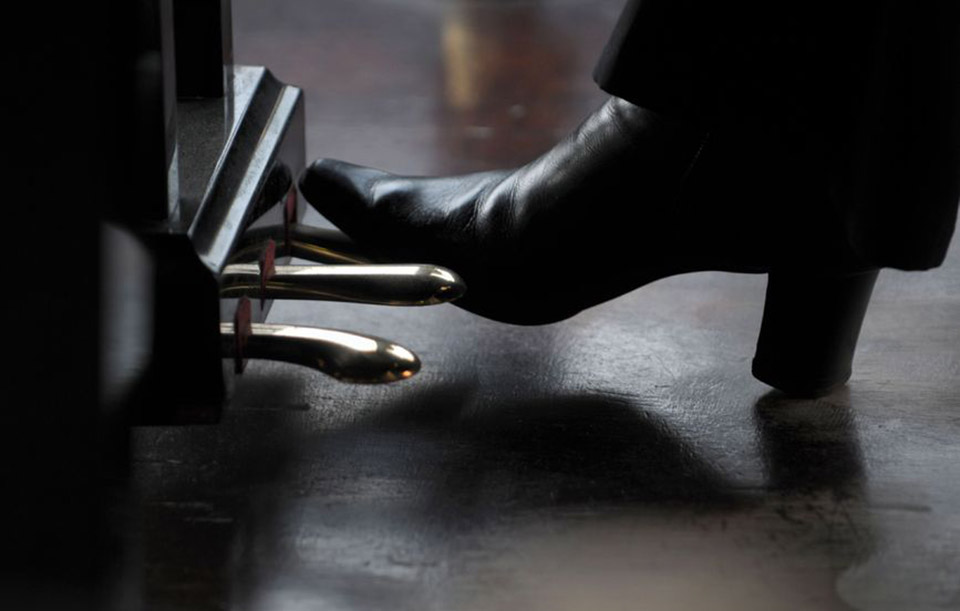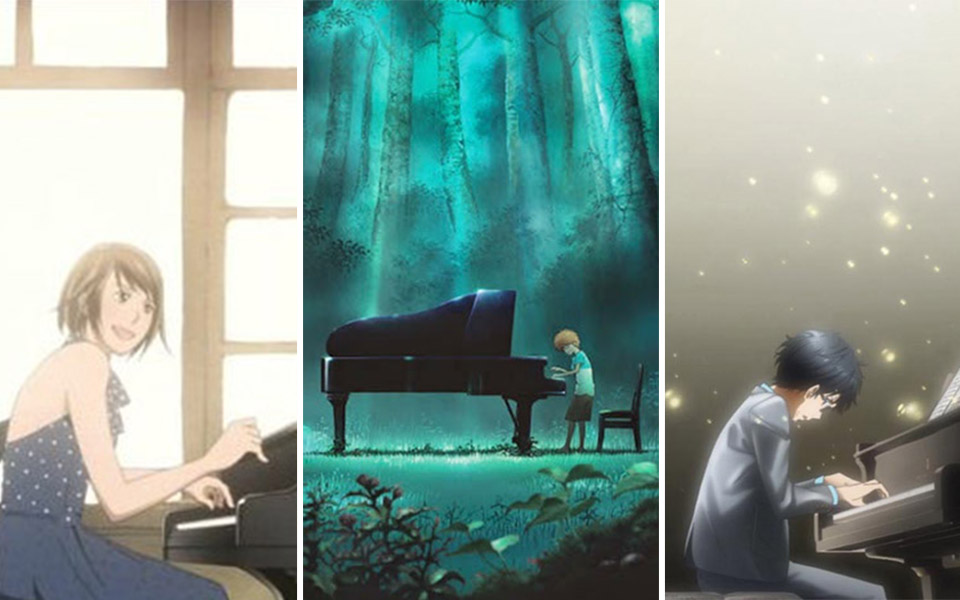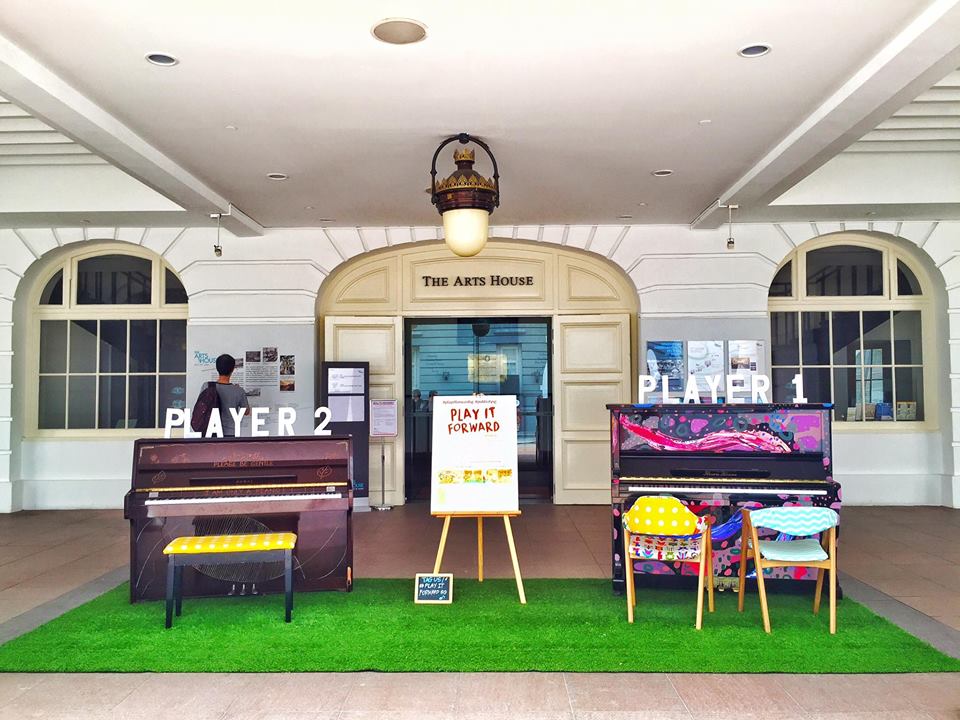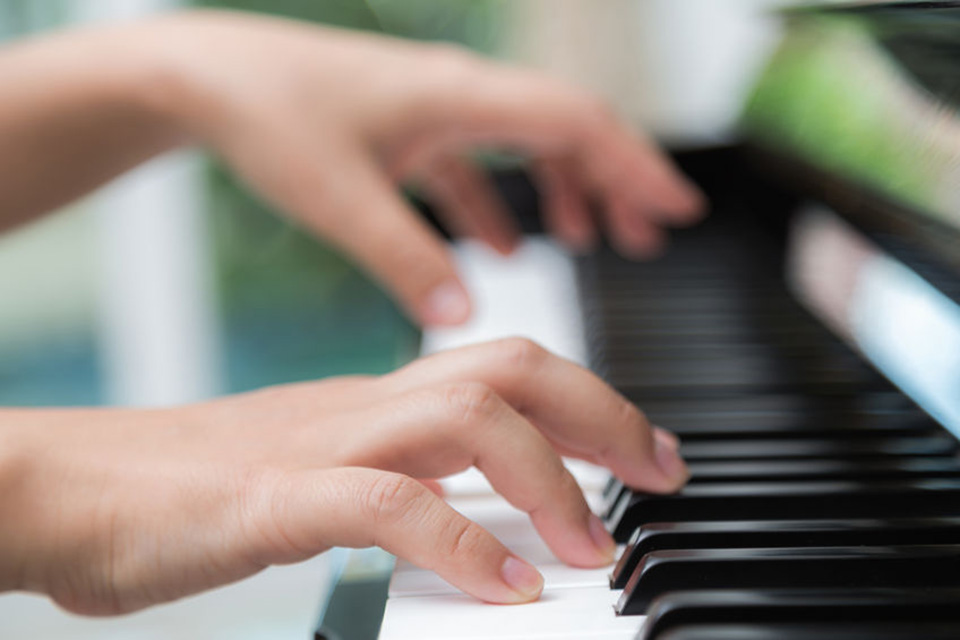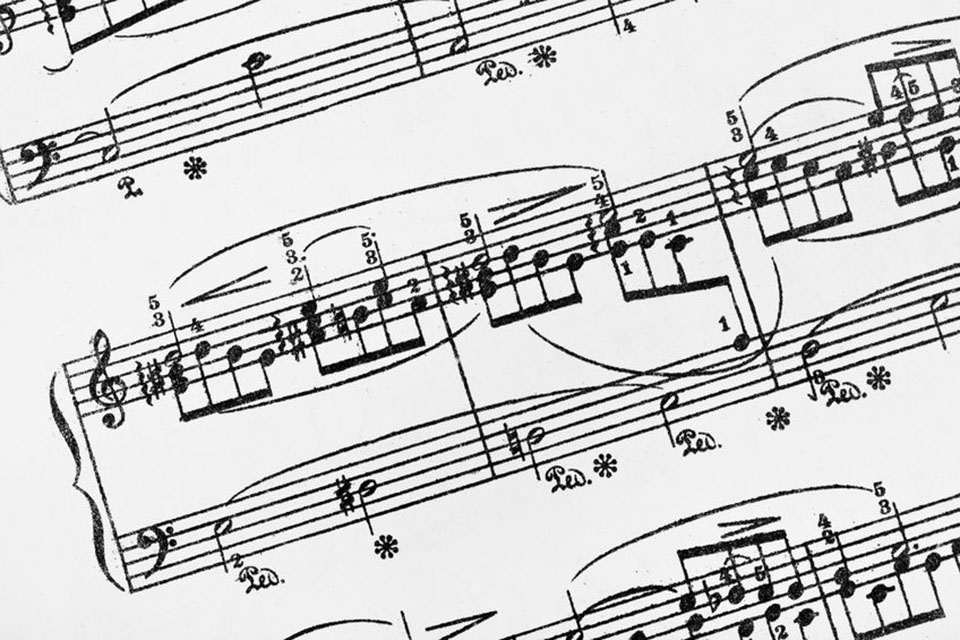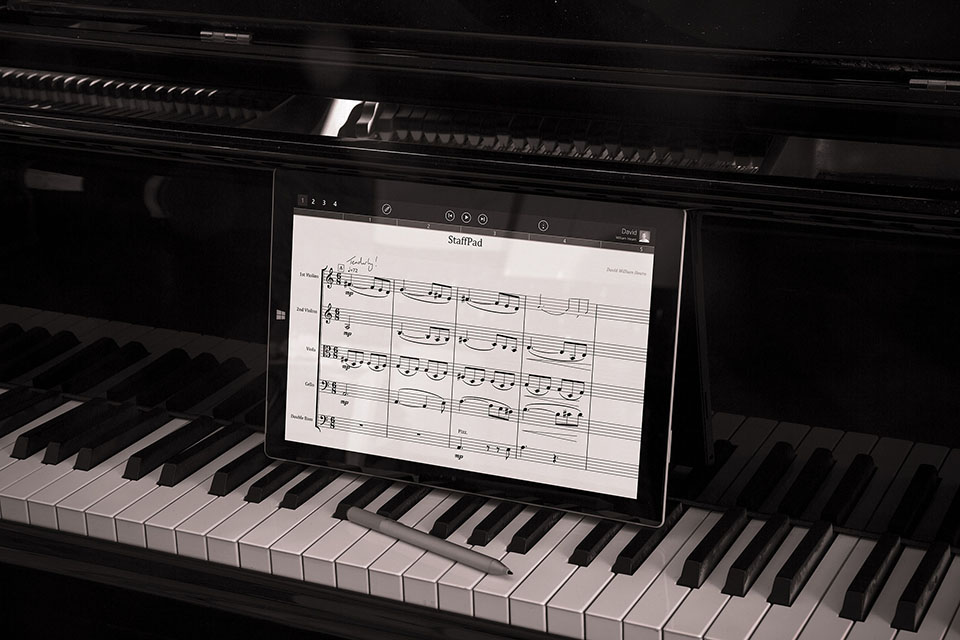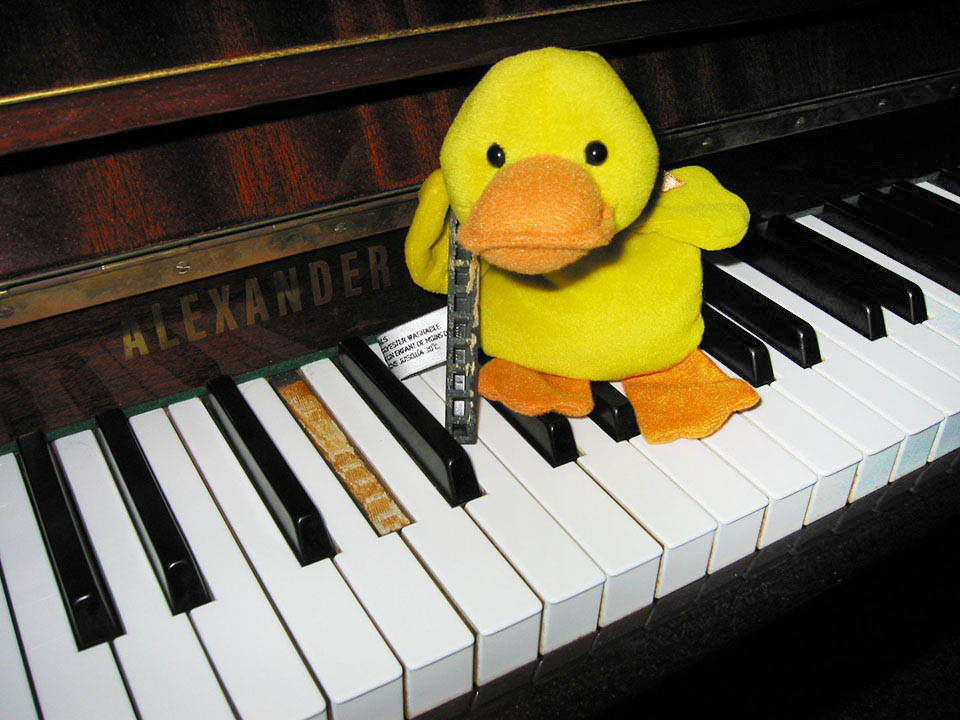<p><span style="font-size: 14px; line-height: 21px;">It is probably one of the most baffling mysteries in the world of piano. Many piano owners might have come across this question but dismissed it as a non-question for the two terms seem interchangeable. For all intents and purposes, both piano tuners and piano technicians are able to do the important job of tuning pianos. Here then comes the million-dollar question: What exactly is the difference between a piano tuner and a piano technician?</span></p>
<p>Play Me, I'm Yours, a piano-themed arts movement conceptualised by British artist Luke Jerram, is coming to Singapore this March 2016. Started in 2008 in Birmingham, it involves collecting pre-loved pianos, refurbishing them and installing them in public places for public access and entertainment, before moving them to charities that will benefit from the musical instruments. </p>
<p>Play It Forward Singapore<span style="font-size: 14px; line-height: 21px;"> is a community initiative started by three young Singaporeans with a cause. Combining their passion for piano-playing, the desire to bring music to the masses and a wish to help the underpriviledged, Jean Hair, Billy Soh and Lee Yan Chang embarked on a creative mission that also brings together musicians who now have opportunities to perform as well as artists who have an avenue to showcase their skills.</span></p>
<p>While the advent of technology has improved the lives of many, a much quieter revolution is happening around us. London-based Sinfini Music has skillfully rendered Bach’s The Well-Tempered Clavier into a visually-entertaining animation that promises to redefine the way we look at music.</p>
<p>NUS Piano Ensemble Alumni Concert was held on 9 Jan 2016 at the NUS Centre For The Arts (CFA). Since its inauguration in December 2013, this annual concert, now running for the third year, has been a greatly-anticipated event among the seniors.</p>
<p>The name Leopold Godowsky is rarely mentioned when one talks about favourite composers who wrote piano works. His compositions are often only explored by pianists who are interested in the exotic repertoire of the piano literature. Does Godowsky deserve this neglect? Perhaps not. He might have been the most unique writer of piano music after Chopin, and that's not forgetting Liszt, Debussy and Rachmaninoff. So why is Godowsky's music not as well-known as that of the composers mentioned above?</p>
<p><span style="font-size: 14px; line-height: 21px;">The Chinese New Year (农历新年) is a very important festival that is celebrated by the Chinese populations in many Asian countries, like Singapore, </span><span style="font-size: 14px; line-height: 21px;">Malaysia, </span><span style="font-size: 14px; line-height: 21px;">China, Hong Kong, Taiwan, Thailand, Cambodia, Indonesia, Mauritius, and Philippines. D</span><span style="font-size: 14px; line-height: 21px;">uring the celebrations, </span><span style="font-size: 14px; line-height: 21px;">many popular Chinese New Year songs are sung, including "Gong Xi Gong Xi" (恭喜恭喜). The fact that it uses the minor key is the oddity, because minor key </span><span style="font-size: 14px; line-height: 21px;">songs </span><span style="font-size: 14px; line-height: 21px;">typically project sadness and loneliness. Why is Gong Xi Gong Xi written in the minor key then?</span></p>
<p><span style="font-size: 14px; line-height: 21px;">You might have come across the phrase "lower register" or "higher register" of a piano. For example, a piano theory book might mention that the Bass Clef is designed to help a pianist read the notes in the lower register of the piano. In his book, </span><a href="https://www.amazon.com/The-Piano-Playing-George-Kochevitsky/dp/0874870682" style="font-size: 14px; line-height: 21px;" title="The Art of Piano Playing, by George Kochevitsky">The Art of Piano Playing: A Scientific Approach</a><span style="font-size: 14px; line-height: 21px;">, George Kochevitsky wrote that "a fast succession of lower tones is more difficult to perceive than one of higher tones because of the overtones. Therefore, what sounds clear in a higher register would sound muddy in a lower register". Have you guessed what is a piano register?</span></p>
<p><span style="font-size: 14px; line-height: 21px;">While movies use box office earnings as a yardstick to decide the highest-grossing and consequently the most successful films, there is no recognised yardstick when it comes to pianos. How is it possible then </span><span style="font-size: 14px; line-height: 21px;">to have a decisive ranking of the top 10 best selling piano brands in t</span><span style="font-size: 14px; line-height: 21px;">he world?</span></p>
<p><span style="font-size: 14px; line-height: 21px;">The metronome </span><span style="font-size: 14px; line-height: 21px;">is a musical tool to help musicians keep in time by producing simple steady rhythmic sounds according to a tempo setting. This</span><span style="font-size: 14px; line-height: 21px;"> very important invention survives many centuries, and even now, many continue to use it. If you walk into a music shop that sells musical instruments, it is very likely that you can purchase a metronome there. Typically, it is known as the Maelzel Metronome, and this explains why t</span><span class="s1" style="font-size: 14px; line-height: 21px;">he tempo notation is written as "M.M. (Maelzel’s metronome) ♩ = 60".</span><span style="font-size: 14px; line-height: 21px;"> But do you know Maelzel wasn't the true inventor of the metronome? What is the history of the metronome actually?</span></p>
<p><span style="font-size: 14px; line-height: 21px;">Taking a piano exam (</span><span style="font-size: 14px; line-height: 21px;">practical) </span><span style="font-size: 14px; line-height: 21px;">is a big thing for every candidate. After all, you have taken time and effort to prepare yourself for this actual day. Here are some tips on what you can do to ride through the exam day.</span></p>
<p><span style="font-size: 14px; line-height: 21px;">On 8 Dec 2015 11.30am, at the Steinway Gallery Singapore in Palais Renaissance, Orchard, Professor Yu Chun Yee, Nicole Tay, piano teachers, music school representatives, parents with their children, and other invited guests were present for the launch of the </span><a href="http://www.steinway-gallery.com.sg/singapore/" style="font-size: 14px; line-height: 21px;" title="3rd Steinway Youth Piano Competition 2016">3rd Steinway Youth Piano Competition 2016</a><span style="font-size: 14px; line-height: 21px;">.</span></p>
<p>There is an obvious <a href="https://en.wikipedia.org/wiki/Star_Wars" title="Star Wars">Star Wars</a> fever on a global scale this December 2015. Straits Times <a href="http://www.straitstimes.com/lifestyle/entertainment/star-wars-the-force-awakens-smashes-box-office-record" title="Star Wars: The Force Awakens smashes box office record">reported</a> that <a href="http://www.starwars.com/the-force-awakens/" title="Star Wars: The Force Awakens, Official Site">Star Wars: The Force Awakens</a> generated a record US$238 million (S$364.34 million) in US and Canadian ticket sales over the weekend as fans of the space saga packed cinemas, according to Walt Disney Co estimates on Sunday (20 Dec 2015). Once more in the limelight is<span style="font-size: 14px; line-height: 21px;"> </span><a href="https://en.wikipedia.org/wiki/John_Williams" style="font-size: 14px; line-height: 21px;" title="John Williams">John Williams</a>, who is the composer for all seven Star Wars saga films. And musicians around the world celebrate Star Wars music in many ways.</p>
<p><span style="font-size: 14px; line-height: 21px;">Ludwig van Beethoven was a famous German composer whose works are still widely heard and performed. Despite the deterioration of his hearing in his 30s and becoming almost totally deaf in the last decade of his life, he remains one of the most famous and influential of all composers, and is considered to be a predominant musical figure in the transitional period between the Classical and Romantic eras. We celebrate his 245th birthday today.</span></p>
<p><span style="font-size: 14px; line-height: 21px;">Playing the piano has always been seen from the typical educational, musical, and performing perspectives. Thus, it can be a refreshing surprise to view it from a new perspective: world records related to piano! Many pianists themselves might not be even aware of these achievements. Time to find out!</span></p>
<p><span style="font-size: 14px; line-height: 21px;">Try running your fingers from one end of the piano keyboard to the other, and you will find that there is a total of 88 black and white keys - 7 and 1/3 octaves. Is it just a coincidence that most pianos have 88 keys, or is there a reason why piano manufacturers have decided 88 keys is a standard? Why not 76 or 100 keys? It turns out that the answer has both historical and practical aspects.</span></p>
<p><span style="font-size: 14px; line-height: 21px;">Most pianos have 3 pedals. The development of the piano's pedals is an evolution that began from the very earliest days of the piano, and continued through the late nineteenth century. Throughout the years, the piano had as few as one pedal, and as many as six or more, before finally arriving at its current configuration of three. Starting from the left, they are the soft pedal (or una corda), the sostenuto pedal, and the sustaining pedal (or damper pedal). </span></p>
<p><span style="font-size: 14px; line-height: 21px;">Motivate yourself today by watching some piano themed Japanese anime. They are extremely inspiring, both for teachers and students! After watching them, you might find yourself putting in hours of practice just to learn the pieces played by the characters! Here is a suggested list.</span></p>
<p><span style="font-size: 14px; line-height: 21px;">There's something special about walking past 2 pianos placed in the public where you can just sit down and start playing them. Because in Singapore, this is truly a rare sight. And I believe Play It Forward - SG could possibily be the first initiative that makes public playing piano in Singapore a reality. Awesome!</span></p>
<p><span style="font-size: 14px; line-height: 21px;">This doesn’t require you to be at the piano and can be practiced anywhere and anytime, you can practise on your table, in the bus, or in the train and you’ll find it achievable in no time!</span></p>
<p><span style="font-size: 14px; line-height: 21px;">Music chords are very important to any musician and composer. When a musician plays a song, he hears the music moving from one chord to another. In fact, he recognises whenever the song ends, it's always a certain </span><u style="font-size: 14px; line-height: 21px;">quality</u><span style="font-size: 14px; line-height: 21px;"> - a "going home" kind of feeling. To him, the quality of the chords in the chord progressions affect how he interprets the music greatly. To a composer, he can use a compositional device like borrowed chords to make an otherwise predictable progression sounds fresher; or perhaps by changing the chord quality to add surprise into a chord progression, e.g. C7 instead of C major chord. How does he tell the quality of a chord?</span></p>
<p><span style="font-size: 14px; line-height: 21px;">The days of writing music on paper are about to change with the introduction of </span><a href="http://apps.microsoft.com/windows/en-us/app/ce714f58-1113-4c30-a9a3-f14a0fb5d7ed?ocid=Apps_Search_WOL_en-us_search-main_search-results-from_search-staffpad_image_staffpad" style="font-size: 14px; line-height: 21px;" title="StaffPad App on Windows Store">StaffPad App</a><span style="font-size: 14px; line-height: 21px;"> on the Windows Store. This music notation software completely revolutionises the way musicians input notes, musical terms, and directions; in the most intuitive way. Watch the video below to see why.</span></p>
<p><span style="font-size: 14px; line-height: 21px;">Today I saw a YouTube video of </span>Gui Gui playing Souvenirs d'Enfance<span style="font-size: 14px; line-height: 21px;">, and was instantly reminded of the FaceBook Share I posted in my Timeline 3 years ago, in April 2012, of the same video. And I want to share this to an even wider audience now, because an inspirational story might be a good vitamin for the heart of those who are learning to play, who wish to learn, or who have given up playing.</span></p>
<p><span style="font-size: 14px; line-height: 21px;">It seems appropriate that I write about a piano I owned some years back. After all, this piano was with me through the growing, as well as hardest and punishing years. There were sweet and bitter times whose details need to be shared, both to satisfy my desire to immortalise its existence, and to offer myself a chance to take a stroll down memory lane.</span></p>
